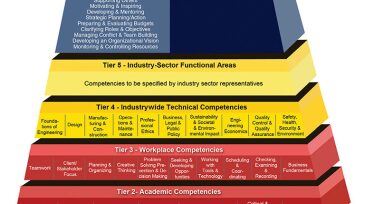soft skills
-
Launched by the SPE Integrated Reservoir Management Technical Section, this initiative provides young professionals with opportunities to apply next-generation skills, build confidence, and develop leadership capabilities, preparing them to guide the industry forward.
-
SPE President Terry Palisch is joined by Susan Howes, president of Subsurface Consultants and Associates, to discuss the importance of soft skills for petroleum engineering.
-
You don’t need to have a formal position of authority to have influence in your organization. While those in authority may change people’s behavior through coercion or clout, influential leaders use their knowledge and soft skills to establish trusting relationships and sway people’s minds and hearts.
-
The SPE Colombia Section, through analysis of data obtained in several studies, identified a lack of soft skills in the country’s young professionals in the energy sector. As a result of the analyses, a project was designed to improve these skills through various activities and keynotes.
-
Business, management, and leadership skills, also known as soft skills or nontechnical skills, can and should be developed early in one’s career, preferably before receiving a promotion to a leadership position. These case studies illustrate the advantages of using business simulations and dedicated learning programs to practice both nontechnical and technical skills …
-
Promotion from a role in field operations to a supervisory position presents its own set of challenges. Although your technical know-how may be topnotch, are you ready to manage people well? These tips point you in the right direction to develop the new skills you’ll need.
-
Upon reviewing the American Association of Engineering Societies’ (AAES) Engineering Competency Model, the SPE Soft Skills Committee established a task force to map AAES’ model to SPE’s competency models and drive the integration of both.
-
While you may have attended one or many industry conferences, symposiums, and workshops, have you ever considered the planning that happens behind the scenes of these events?
-
Given the cyclical nature of the industry, how might individuals and companies prepare for a potential re-emergence of the boom cycle? This article emphasizes the importance of soft skills in navigating the effects of systems and structures on human patterns of behavior.









